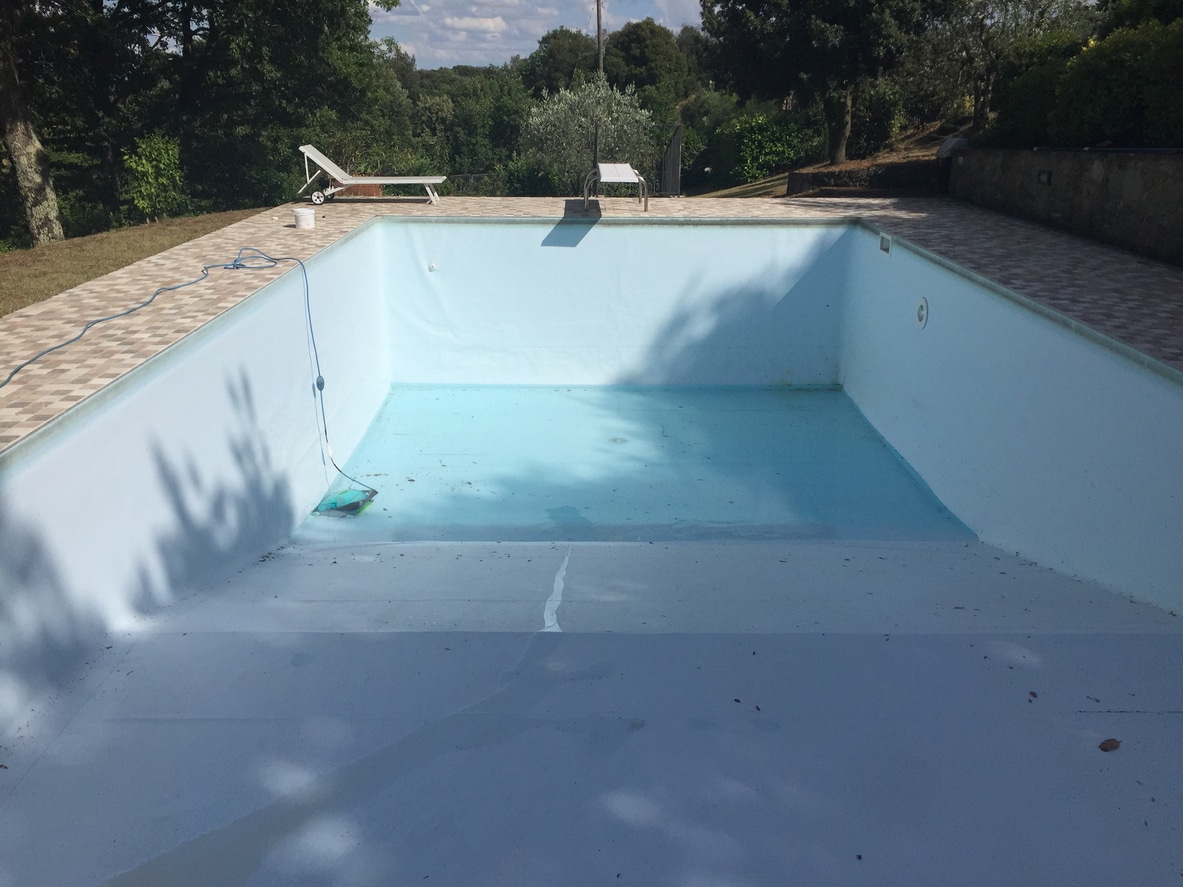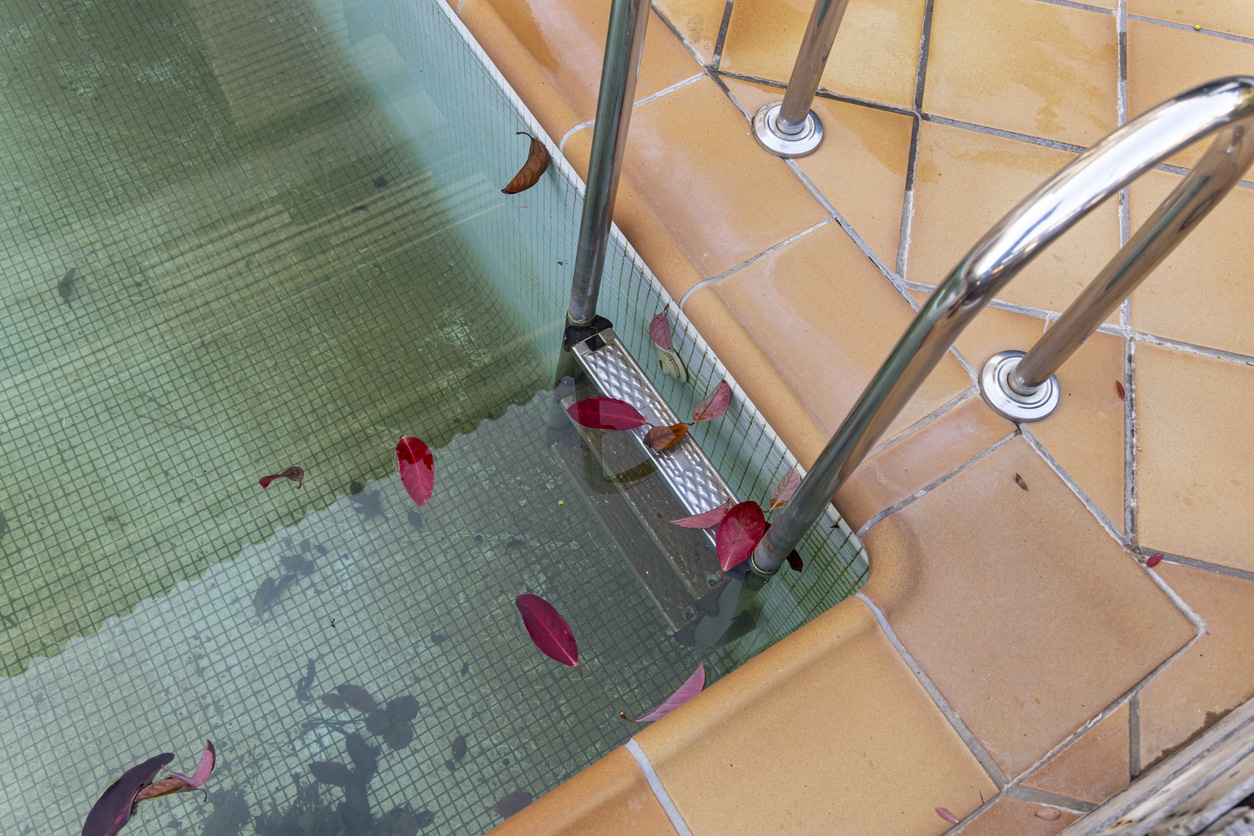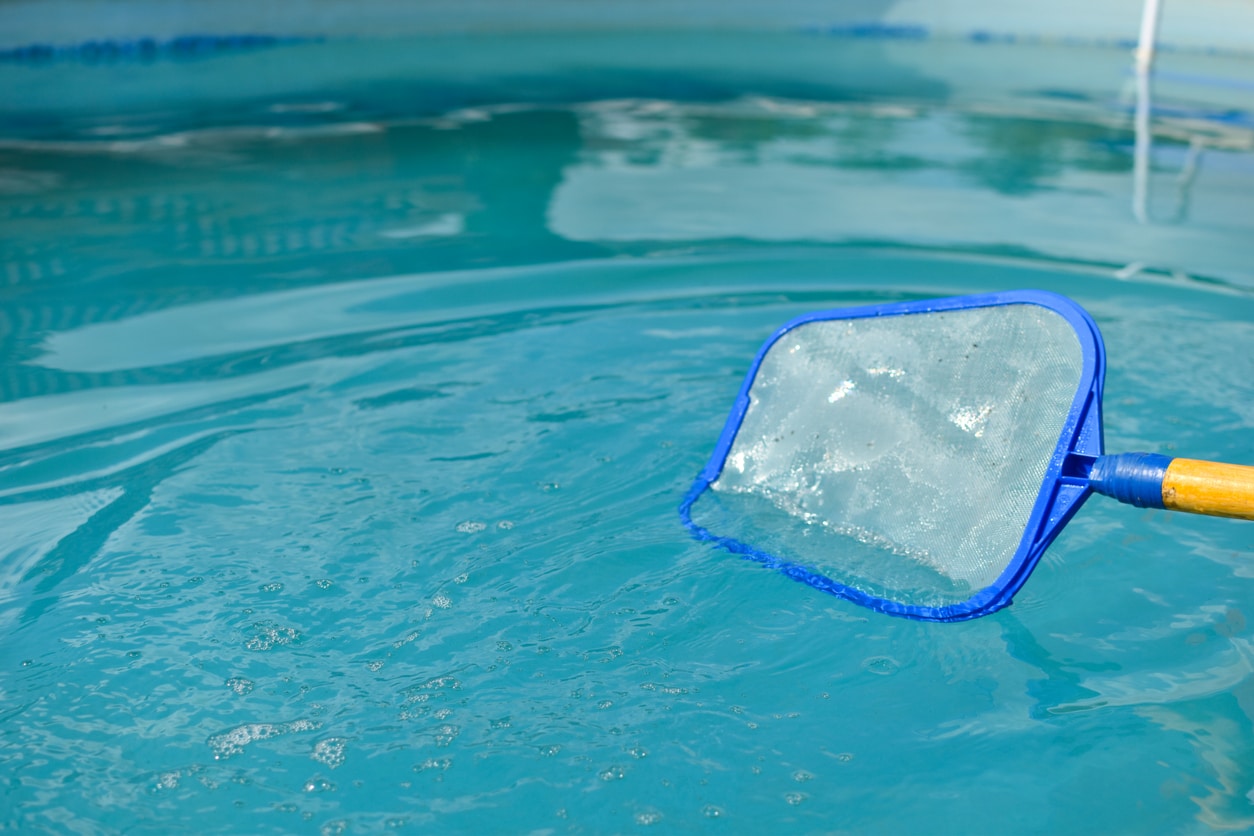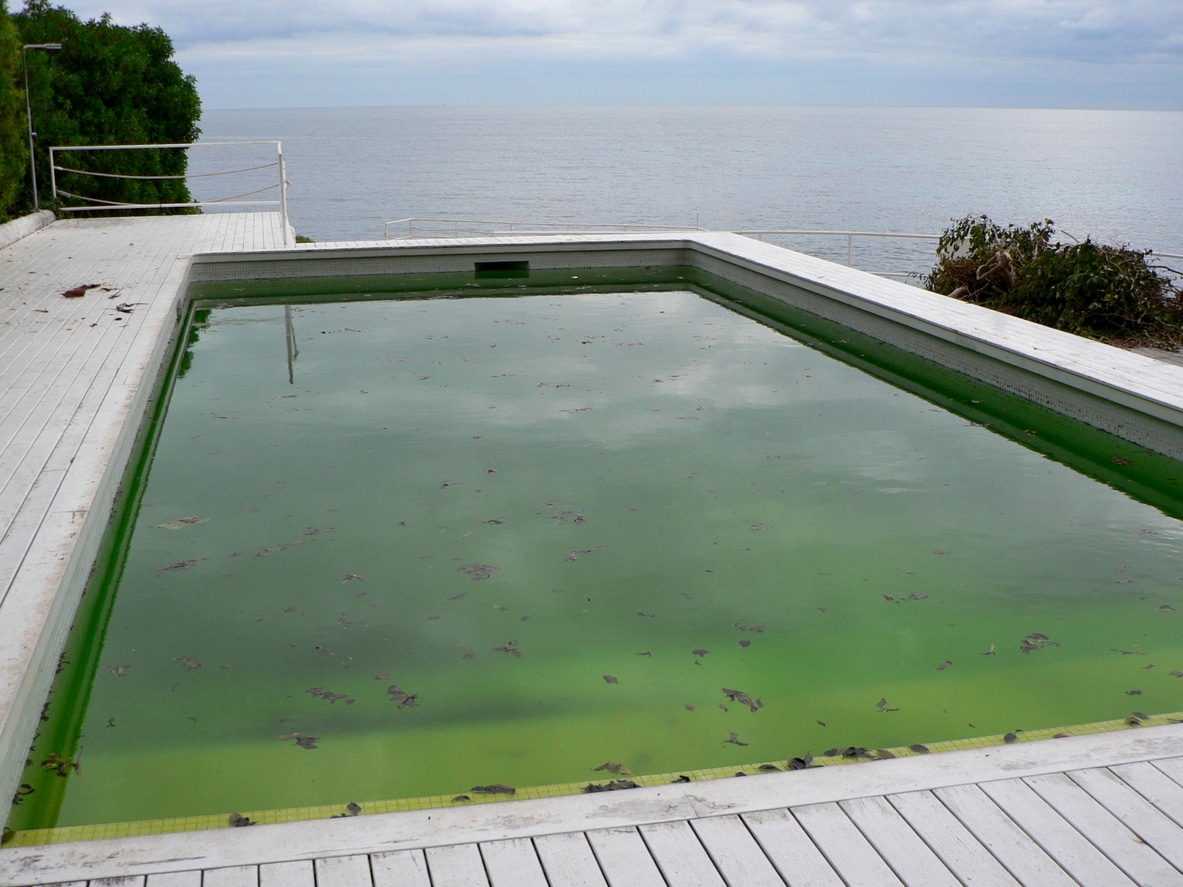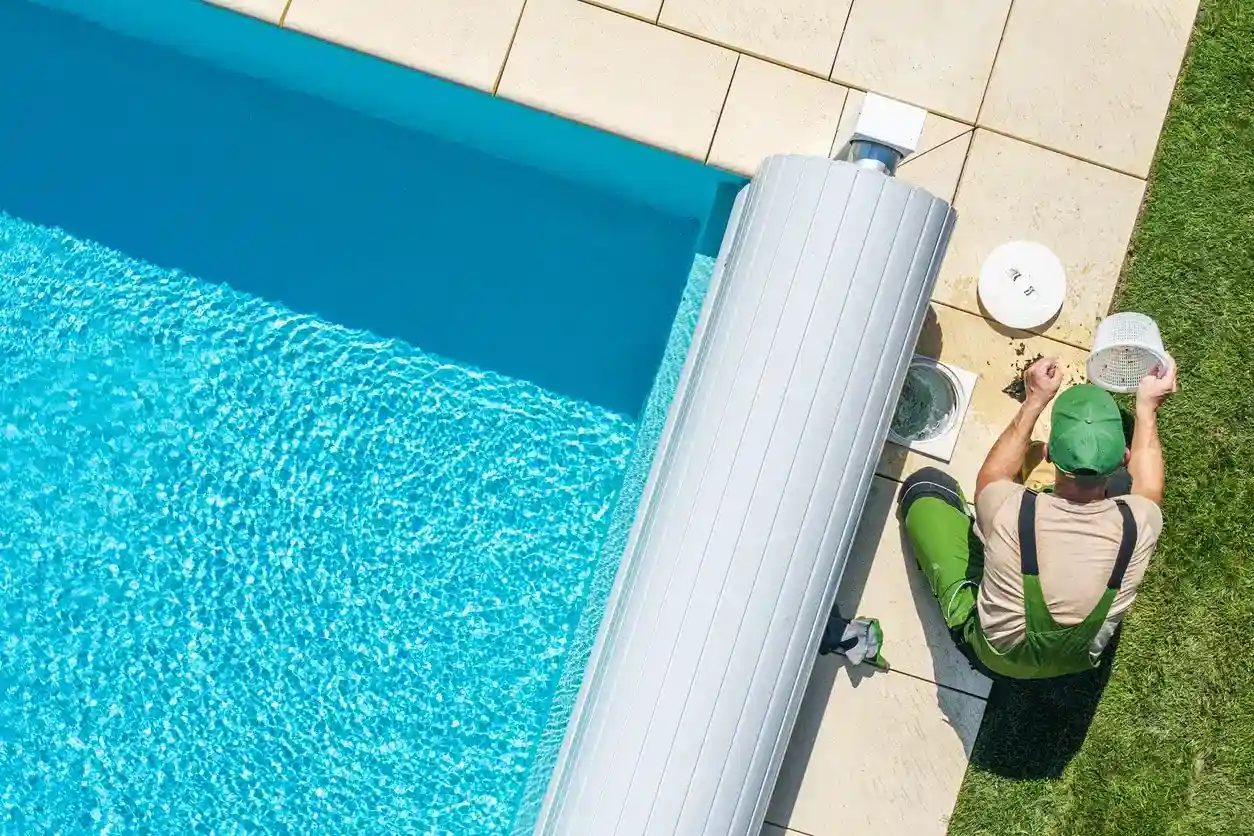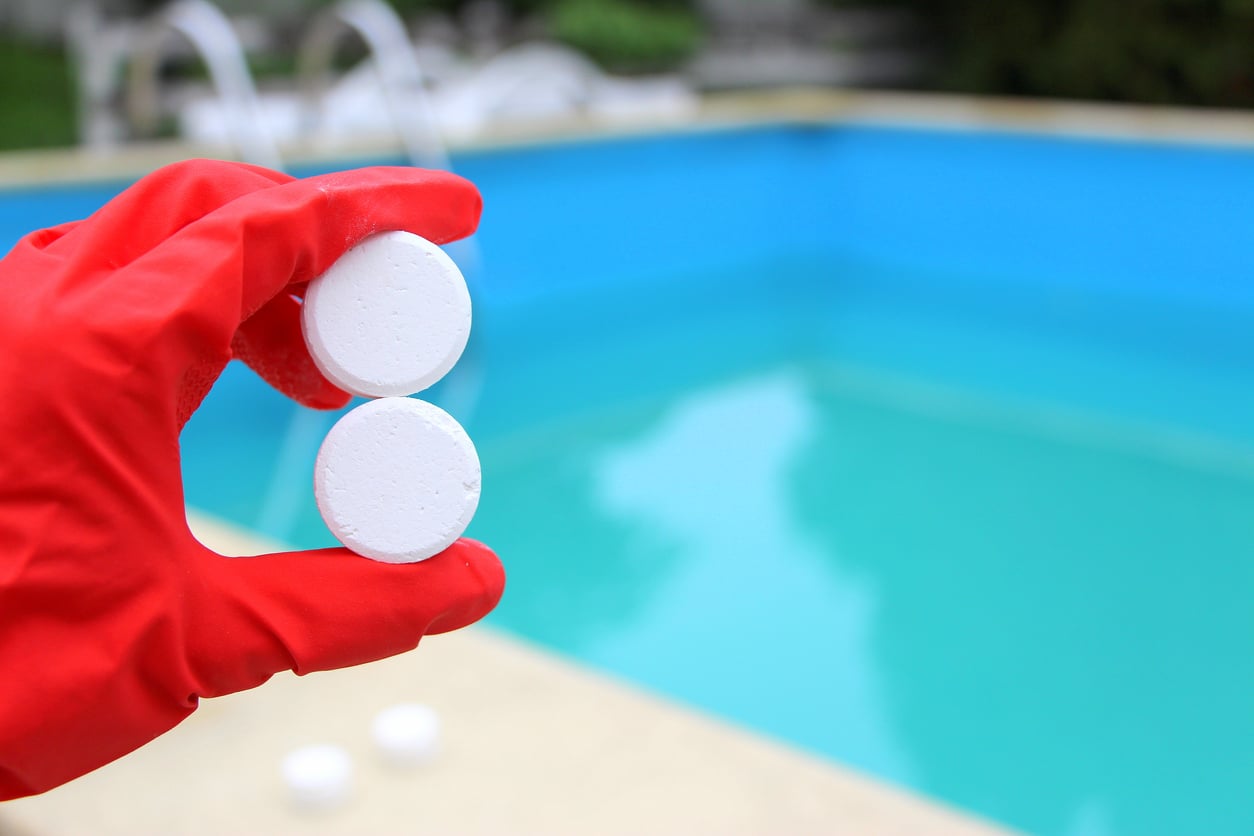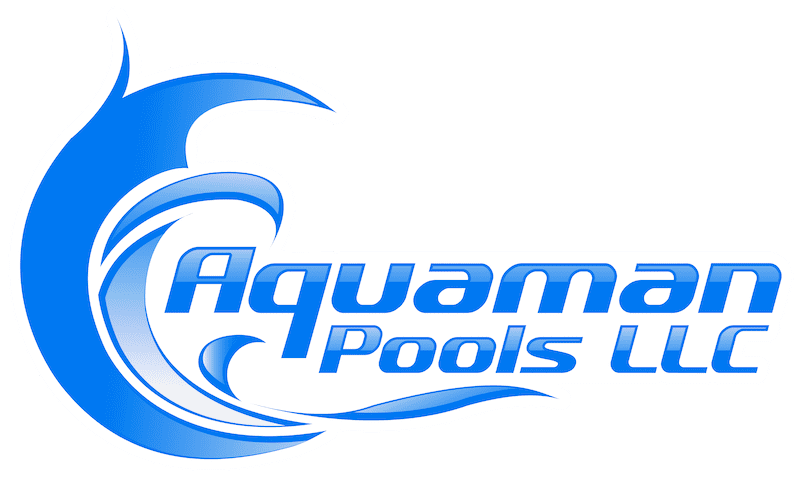Serving Scottsdale and Surrounding Areas
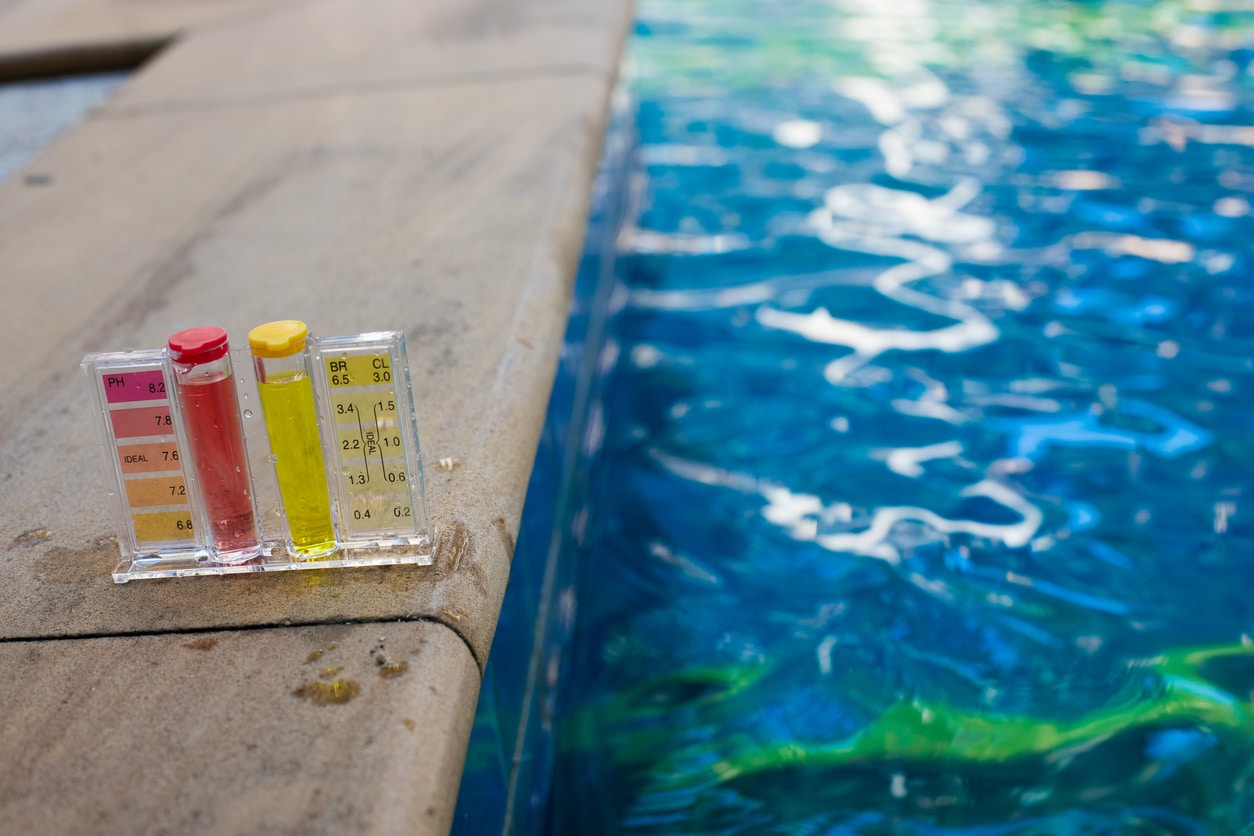
Pool Health 101: Chemical Breakdown
The Importance of Balanced Pool Chemistry
Many of us recall going to the local pool when we were kids. We’d head out early and claim our spot near the pool, prepared for the joyful day of swimming. These experiences were the best part of summer break.
But another thing we all likely recall is extremely red eyes that lasted quite a while after swimming because of pool chemicals. Probably, the community center or our city was preparing for the overload of kids by placing an increased amount of chlorine into the pool. But when your pool water chemistry is balanced correctly, your irritated red eyes should be much less of an issue, if not gone completely.
The reality of pool water chemistry is that your dream pool can be had by keeping the chemistry stable all the time. Whereas when you have unbalanced pool water, it can create health and safety hazards, not to mention that it will decrease the beauty of your yard. For many beginners, keeping their pool chemistry as it needs to be can be quite the challenge.
To maintain pool water that is clean, clear, sanitized and safe, chemicals are crucial. And the delicate balance of those chemicals can make all the difference.
Essential Pool Chemicals
Chlorine and Bromine
These are the pool’s sanitizers. Chlorine serves to neutralize bacteria or viruses in the water by attaching to these contaminants and eliminating them. Once done, the chlorine is no longer effective, which is why it must be added on a regular basis. Chlorine absolutely needs to be balanced, and the ideal amount in your pool is 3 ppm (parts per million). Place too little into your pool and you risk giving someone a foul disease. Put too much and you might experience those pesky red eyes or even something much worse such as respiratory difficulties or burnt skin.
Bromine, on the other hand, is more commonly used in spas, hot tubs, or heated pools, as it is more efficient at higher water temperatures. Bromine ionizes bacteria and viruses, but unlike chlorine it continues to work after it does so, typically longer than chlorine. It can be distributed like chlorine and its target balance is between 3 ppm and 5 ppm.
pH Balancers
These help keep the water’s pH within a healthy range, and its imbalance can actually make pool sanitizers and chemicals less effective at their jobs. The pool’s pH is a very delicate balance and is impacted by anything that enters the pool — leaves, dirt, debris, rain water, etc. Luckily, it’s fairly easy to balance. Ideally, pH levels should read between 7.2 and 7.6. Outside of that zone, the alkalinity can get out of whack.
If the pH is off in your pool, you could end up with an alga overgrowth, or you might create a scenario where the chlorine is unable to disinfect the pool properly. Besides algae overgrowth and potentially burning one’s skin, the plaster of your pool can be ruined by a low pH level.
Alkalinity Balancers
Speaking of alkalinity, it serves as a shield for pH levels. In many cases, if the pH levels are off, adjusting the alkalinity first can naturally balance out the pH. The range for alkalinity is between 100 ppm to 150 ppm, with 125ppm being the recommended level.
Calcium Hardness Balancers
Balanced calcium levels are crucial for the longevity of the pool. The amount of calcium in the water (in addition to other factors) determines the “hardness” of the water. Ideal calcium range is between 80 ppm and 150 ppm for a vinyl pool and 150 ppm to 200 ppm for a concrete, plaster, or tile pool.
Not enough calcium can cause corrosion in the pool’s systems, equipment, and plumbing. Calcium levels that are too high can damage the plaster or tile. Once again, alkalinity comes into play – if calcium levels are off, check the alkalinity first, then the pH levels.
Algaecides
These stop the growth of algae in the water and can prevent algae from growing in the first place, so they are a very important part of the pool’s chemical balance. Algae can be tricky to get rid of, so it’s ideal to stop it before it starts or catch it early – before it has a chance to discolor the water, cause damage to equipment or even cause a bacterial skin infection. In addition to the use of algaecides, proper water circulation is key and brushing the pool’s tiles and interior surface can keep algae at bay.
Shock
“Shocking” the pool may need to be done when the water’s sanitizers are overworked (such as after a big rainstorm or heavy use in the summertime). Essentially, shocking the pool serves to super-chlorinate the water to sanitize it.
Pool Chemical Safety
Safe Management of Chemicals
Pool chemicals are dangerous to your well-being when not managed by someone who knows what they’re doing. All kinds of things can fail when you try and keep your own pool chemistry in the proper state. For example, “wetting” is when a bit of water gets into a compound that’s normally watered down a lot in a pool, which can create acid sludge (undoubtedly something to avoid).
Chemical Storage
You should keep pool chemicals in a safe, dry place and make sure that kids or pets can’t get into them. The EPA has a safety alert to keep you informed about any possible issues involved when handling and storing chemicals.
Professional Water Testing and Advice
If you get your pool’s chemistry checked on a regular basis by a pool service professional that is familiar with the place you live in, you can easily expect your pool water to be safe for all swimmers. On that same note, if your chemicals are improperly stored on your property or when the chemistry of your pool is off, you create an environment that is unhealthy and even dangerous. It’s possible for you to cause lung damage, burns, illness, or much worse. When in doubt, put your faith in professionals who know what they’re doing and who you can trust to keep your pool safe, healthy, and fun.
Test and Balance Your Water Regularly
The health and safety of the pool water is all about chemical balance! A basic pool test kit or a more advanced system can help pool owners keep their levels in check. Of course, a professional pool service such as Aquaman Pools can also make easy work of this and other pool needs so that you spend less time on pool maintenance and more time enjoying it!

